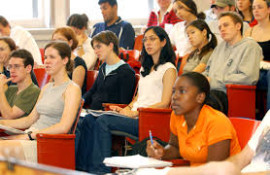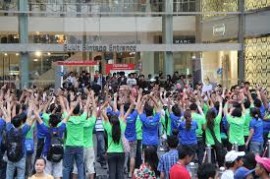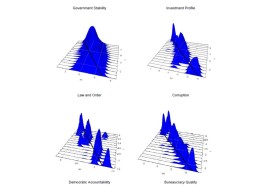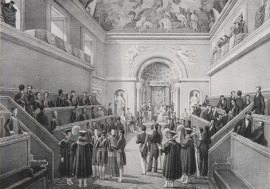- Fecha(s): 25/05/2020
- Lugar: SEMINARIOS ONLINE CIO (UMH): http://cio.edu.umh.es/seminariosonline/ (Se grabará)
- Ponente: Sergio Hernández , Fragile Technologies, S.L.,Murcia.

“Se dice que todo problema es un problema de optimización, pero no sabemos cómo convertir todos los problemas en simples funciones a optimizar y, aunque lo supiésemos, no sabemos resolver el problema de la optimización de forma general; sólo sabemos hacerlo con cierta eficiencia si el dominio es convexo y la función es convexa, continua…
- Fecha(s): 18/05/2020
- Lugar: SEMINARIOS ONLINE CIO (UMH): http://cio.edu.umh.es/seminariosonline/ (Se grabará)
- Ponente: Daniel Santín, Universidad Complutense de Madrid.

The main objective of this paper is to propose a tool for measuring the productivity and performance gaps across a set of Decision Making Units (DMUs)for monitoring their evolution and analyzing their components over time. To do this, we use the approach proposed by Aparicio and Santín (2018), which isgrounded on a base-group base-period productivity…
- Fecha(s): 11/05/2020
- Lugar: SEMINARIOS ONLINE CIO (UMH): http://cio.edu.umh.es/seminariosonline/ (Se grabará)
- Ponente: Javier Cuenca, Departamento de Ingeniería y Tecnología de Computadores, Facultad de Informática, Universidad de Murcia

La metodología general de investigación en cualquier campo científico está organizada como una serie de etapas para la consecución del objetivo propuesto a partir de una hipótesis de partida. En cada una de estas etapas nos encontramos con una metodología de desarrollo, unos instrumentos que utilizar, un contexto de realización y unos requerimientos de precisión…
- Fecha(s): 06/03/2020
- Lugar: Seminario Economía Aplicada - Planta 3
- Ponente: Alfonso Rosa

We study experimentally how to prevent bank runs using a mechanism inspired in Andolfatto et al. (2017). They propose a mechanism that eliminates bank runs as an equilibrium situation of the deposit contract and implements uniquely the efficient outcome. In our experimental enviroment bank runs may emerge both as a coordination failure in equilibrium and…
- Fecha(s): 28/02/2020
- Lugar: Seminario Azul - Planta 4
- Ponente: David Rodríguez-Justicia

Based on predictions from a theoretical model in which voters’ tax compliance behavior is driven by fairness concerns we empirically analyze the channels through which ideological stances influence citizens’ willingness to pay taxes. By using heteroskedasticity-based instrumental variables we find that ideological differences between citizens and their governments cause a decrease in tax morale. An…
- Fecha(s): 18/02/2020
- Lugar: Aula O.1, Edificio Torretamarit, UMH (se grabará)
- Ponente: David Conesa (Universidad de Valencia).

Cuando nos encontramos en las noticias cada día desastres naturales como incendios, inundaciones y epidemias, nos podemos plantear si es posible hacer algo para prevenir o saber más sobre dichos desastres. En esta charla veremos como es posible ayudar a mejorar nuestro conocimiento de los problemas relacionados con las ciencias de la vida y la…
- Fecha(s): 14/02/2020
- Lugar: Seminario Economía Aplicada - Planta 3
- Ponente: Jose Carlos Rodríguez Alcantud

Oligarchic majority rules bring the voice but no vote principle into effect. We prove characterizations of the oligarchic majority rules for both fixed and unrestricted societies and a binary agenda. This is a general class of rules that includes the simple majority rule as well as dictatorships. Suitable sets of axioms identify a subsociety whose members have…
- Fecha(s): 13/02/2020
- Lugar: Sala de Seminarios del I.U. CIO, UMH (Se grabará)
- Ponente: Justo Puerto, IMUS, Universidad de Sevilla

In this talk we revisit common problems of Data Science [1, 2]. Specifically, we focus on the problem of locating a given number of hyperplanes minimizing a globalizing function of the closest distances from a set of points. Following an initial attempt in [3], we propose a general framework for the problem in which general…
- Fecha(s): 06/02/2020
- Lugar: Seminario del Departamento de Economía Aplicada (Facultad de Economía y Empresa). Se retransmitirá vía Aula Virtual.
- Ponente: Miguel Ángel López Morell

Resumen Las alusiones al patrimonio y los negocios generados por la viuda de Fernando VII y reina regente, María Cristina de Borbón, y su segundo esposo, Agustín Fernando Muñoz, son una constante en la historiografía política española y en su día se consideró uno de los mayores escándalos de corrupción de la historia de España….
- Fecha(s): 30/01/2020
- Lugar: Seminario del Departamento de Métodos Cuantitativos para la Economía y Empresa, UMU.
- Ponente: Ainoa Aparicio Fenoll. University of Turin

Abstract: I estimate the effect of being the best in the class} in the early years of schooling on future academic performance. I implement a novel methodology that does not require experimental data. My methodology exploits that some students are the best in the class because better students in the same school are assigned to…









